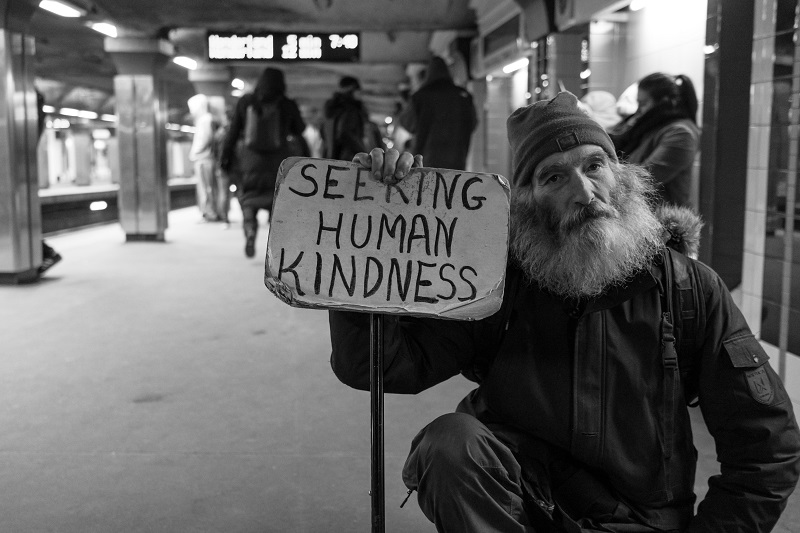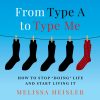Compassion is Tough
I have read Brené Brown’s book, The Gifts of Imperfection, at least twice now and never highlighted the section at the top of page 17 until my friend recently shared it with me. “We live in a blame culture – we want to know whose fault it is and how they’re going to pay. . . but we rarely hold people accountable . . . this rage-blame-too-tired-and-busy-to-follow-through mind-set is why we’re so heavy on self-righteous anger and so low on compassion.” Let’s break this apart but first, here is some of my own experience.

I have written before about my chain-smoking neighbors. They smoke constantly throughout the day and inevitably, the smoke comes into my house. This has been happening for over two years now. I complained to my husband. I complained to every friend I could. I wrote a post about it. But, until now, I never brought it up to them. I experienced pain and I leapt into self-righteous anger and blame which did not go anywhere except between my two ears. I finally had the courage to speak with the neighbors, sanely and clearly. We discussed options; I set boundaries. Unfortunately, this has not stopped them smoking or the smoke coming into my house, but it did empower me. I stopped spending every waking movement replaying the evil they were bestowing on me. Instead, I now find ways to create my own boundaries – closing windows, using fans to point the smoke out, and reclaiming my balcony at least half the time. It is not ideal, but it feels so much more peaceful than stewing in hate.
Blame / Self-Righteous Anger
As I initially did with my neighbors, many people are turning to hate because it is easier than acting differently. Over these past years, I had a spent way too much time focused on how horrible my neighbors were. How inconsiderate they were. How they should pay for their actions. I clearly defined who was good and right (me), and who was bad and wrong (obviously them). It felt good to my ego and my indignation, but it didn’t come close to solving my problem or providing me with clean air.
I agree with Ms. Brown wholeheartedly (no pun intended) when she says that our first response to pain and fear is to attack and blame. Spend 10-seconds on Facebook at any given time and you can see this in action. Self-righteous anger is a way of life for many of us right now.
I realize I play the blame game because I tend to take on the role of victim and feel powerless to make my needs known. For others, they may be in desperate need of connection and find it easier to connect through hate instead of love. It really does not matter why we turn to hate and blame first, what is more important is what can we do differently.
Compassion
Stepping away from my own pain and anger, allowed me to see the full picture. I became aware of my neighbor’s life and their motives. By looking at their own pain and struggles, I began to have compassion for them. They stopped being the bad guy and started to be just another person struggling to be the best they can.
Compassion, Ms. Brown explains to us, actually means “to suffer with.” Isn’t that lacking today? Instead of hearing another’s struggles and fears and being with them, we instead blame and label. We don’t have the courage to actually suffer with them, to walk in their shoes. As American Buddhist nun Pema Chödrön wrote, “Only when we know our own darkness well can we be present with the darkness of others. Compassion becomes real when we recognize our shared humanity.”
Boundaries
Having compassion and understanding does not mean that we resign to accepting personal pain. No. We can have compassion for others and set strong boundaries. We can understand someone else’s viewpoint and look for beneficial solutions for all.
I think Ms. Brown lets people off too lightly when she says, “We’re so exhausted from ranting and raving that we don’t have the energy to develop meaningful consequences and enforce them.” Personally, I never thought I had another option than to rant and rave. I felt powerless and victimized. I felt that a “good girl” accepts things as they are and doesn’t rock the boat. I thought the only options were to sit in my resentment or attack someone else (which for me is not an option). I am learning the space of gray between those two options. First, I need to identify what is not working for me. Instead of blaming the other, I need to define my boundaries and needs, and then ask for them. I have the power to change my circumstance either through letting someone become aware of how they are affecting me or to make changes in how I act and react.
Moving Forward
The Brené Brown quote I shared in the first paragraph is from a chapter called “Courage, Compassion, and Connection.” These are all things I think the world is in much need right now. But how do we get them? The way Ms. Brown tells us we gain each is by doing them. Just like we learn to walk by walking, we learn these important and powerful traits is by doing them. How can you start today?




